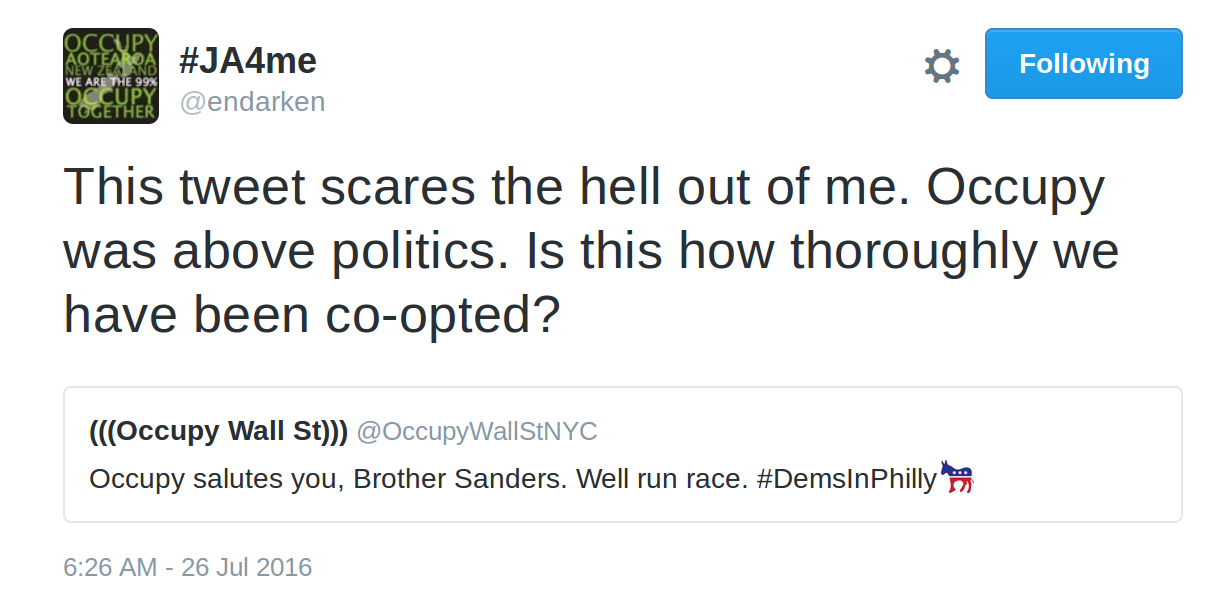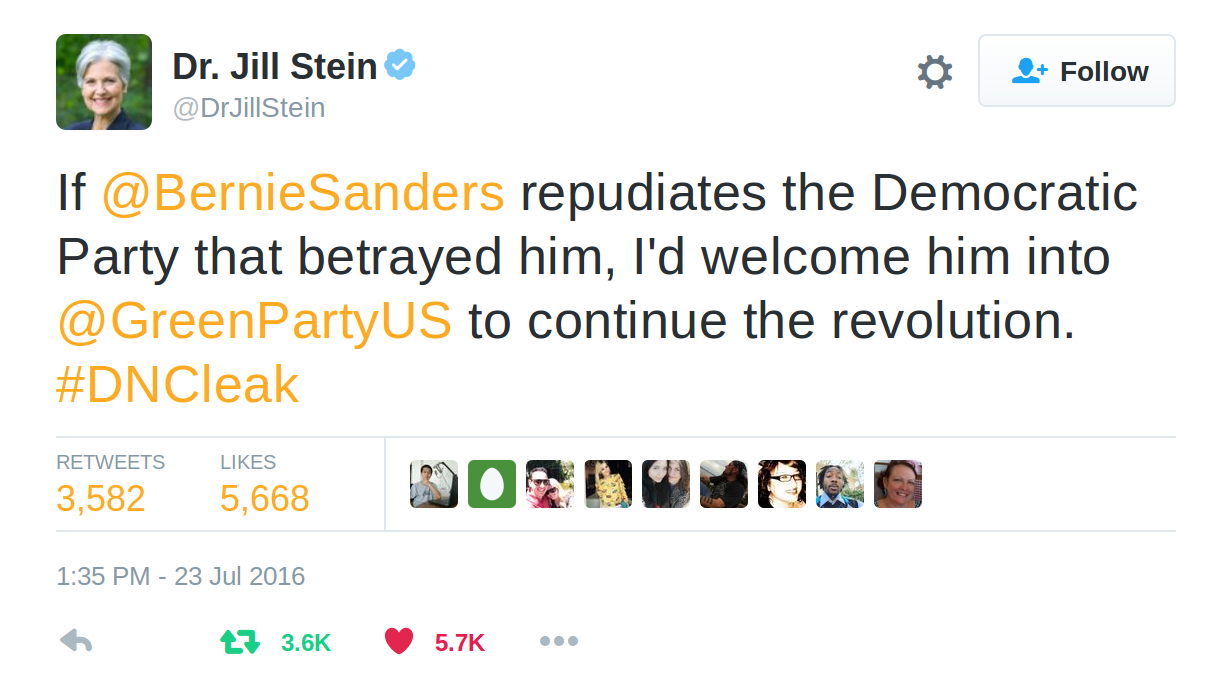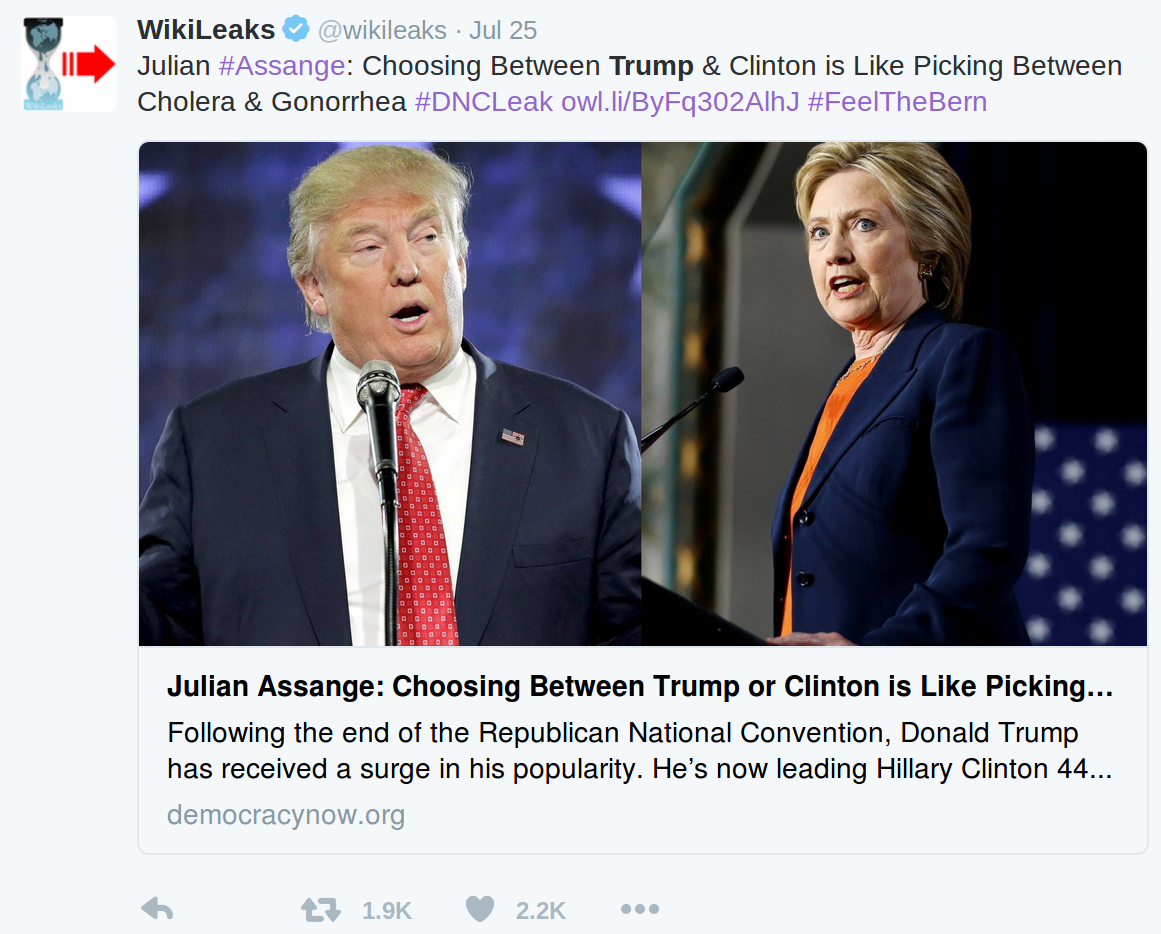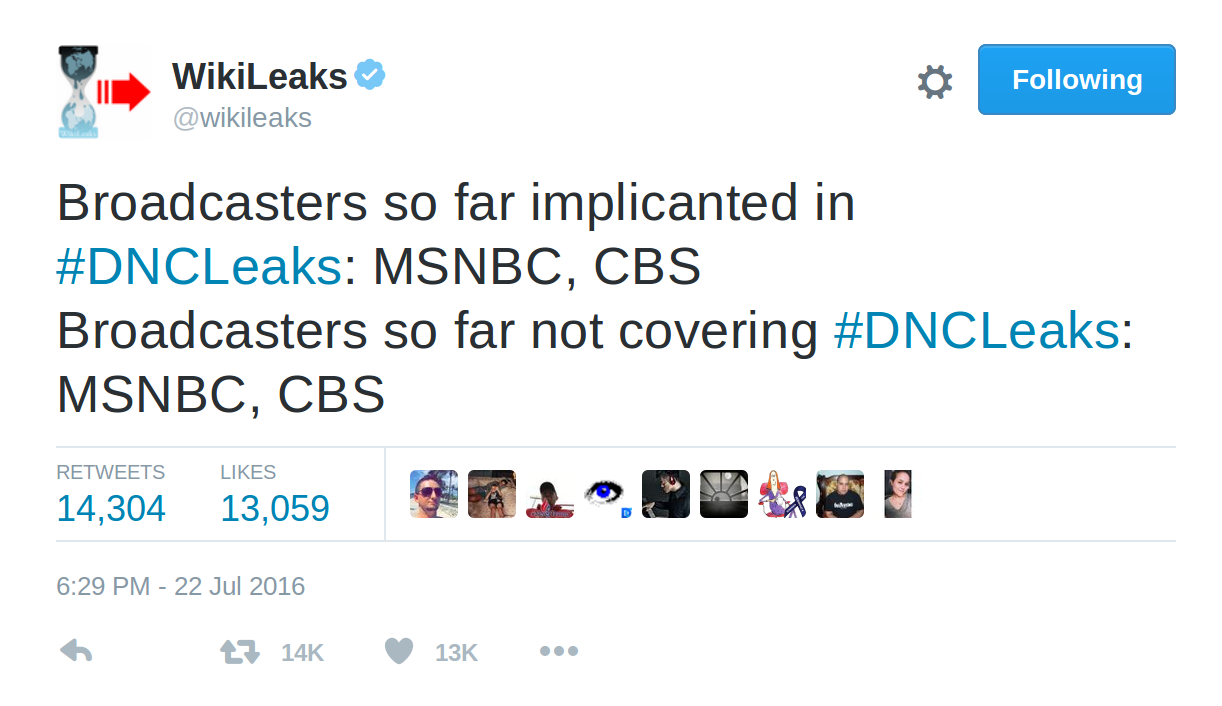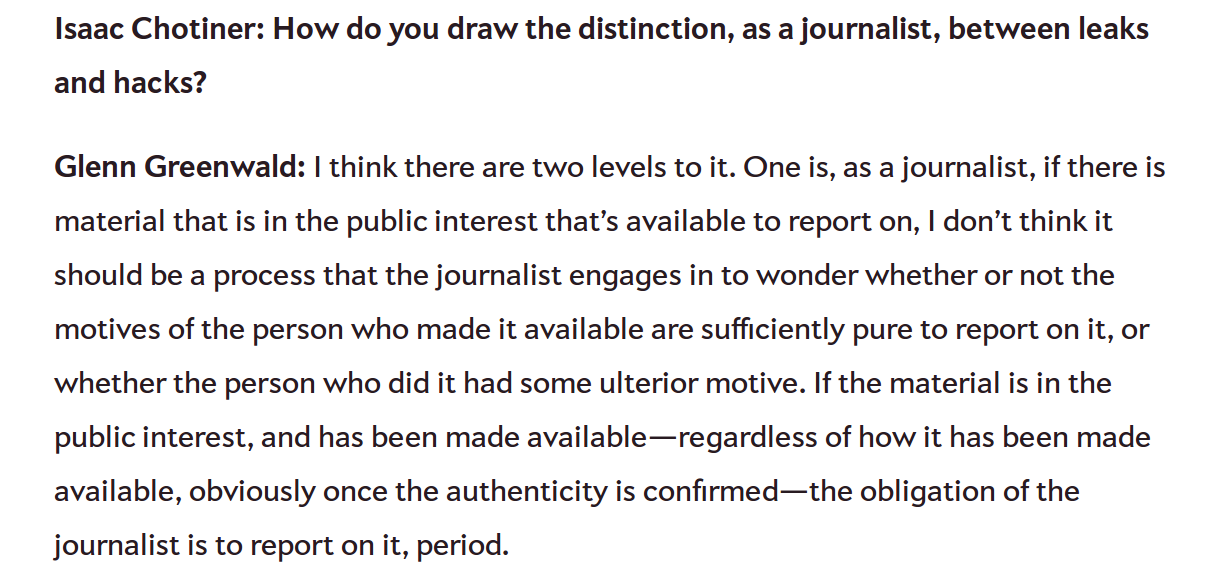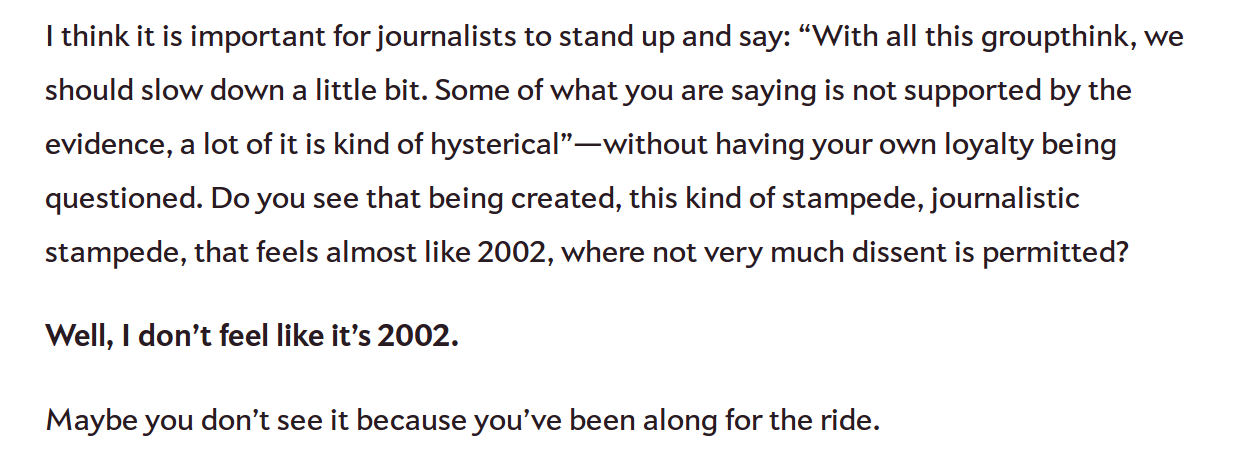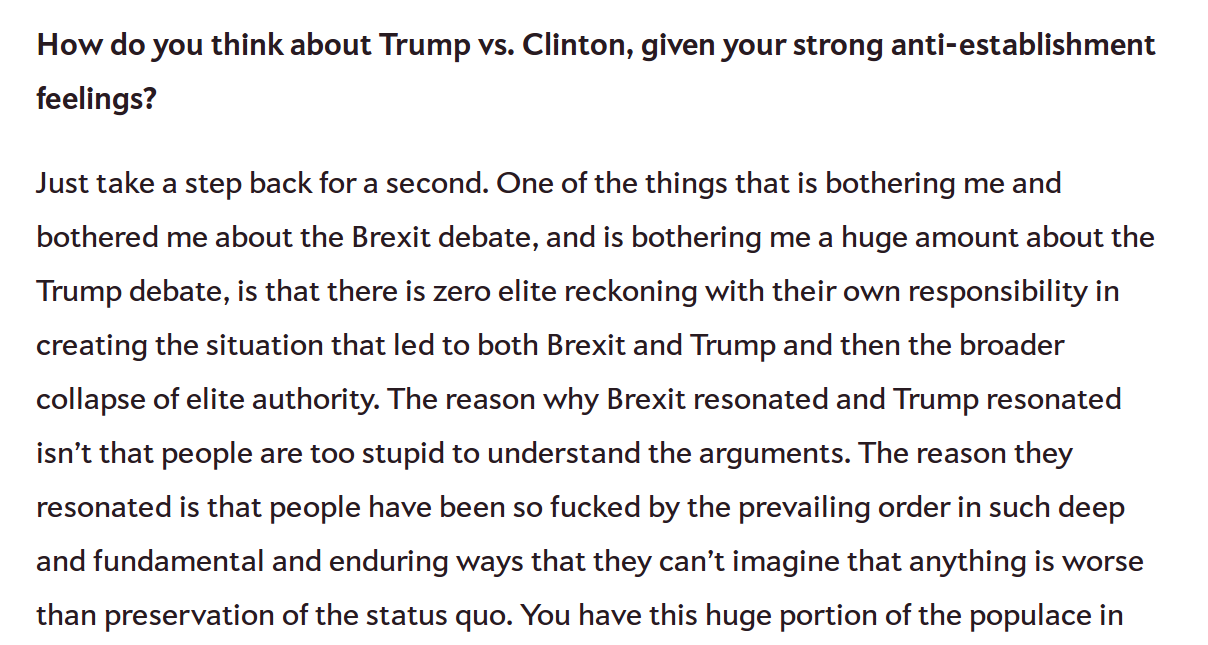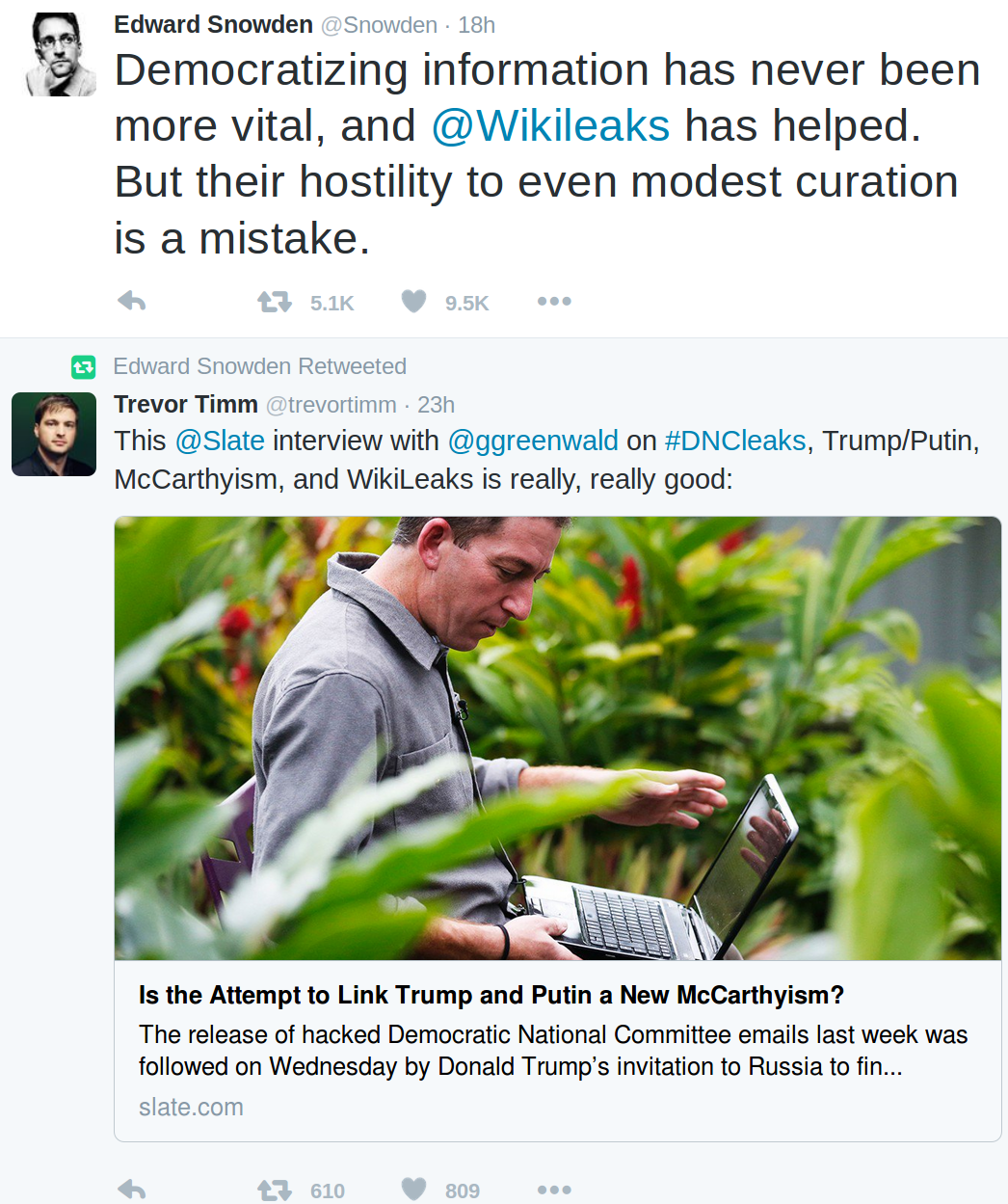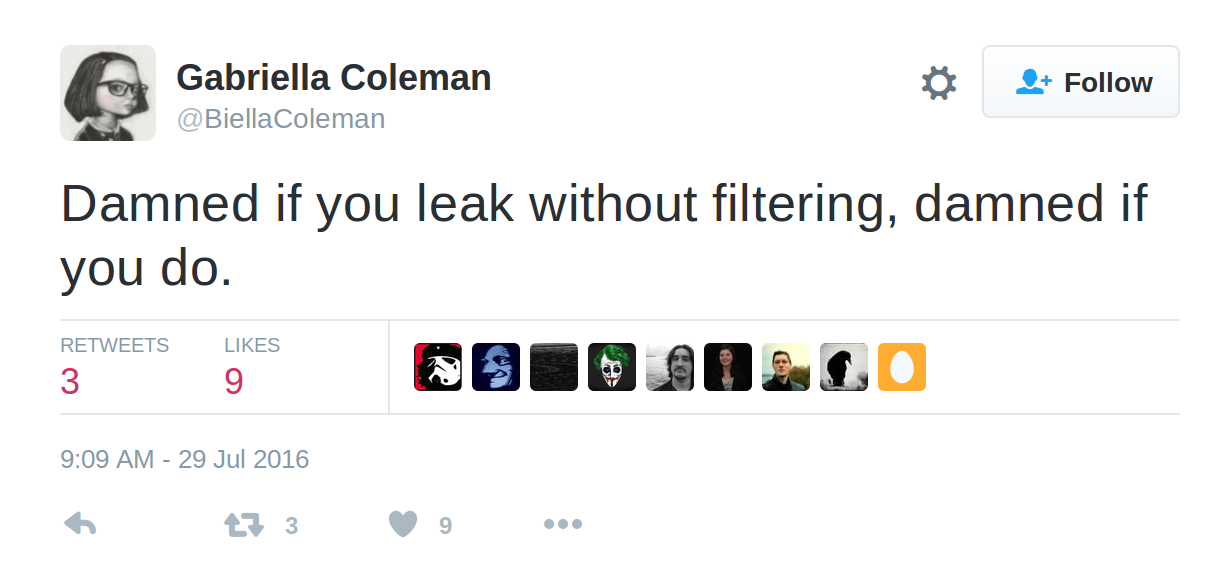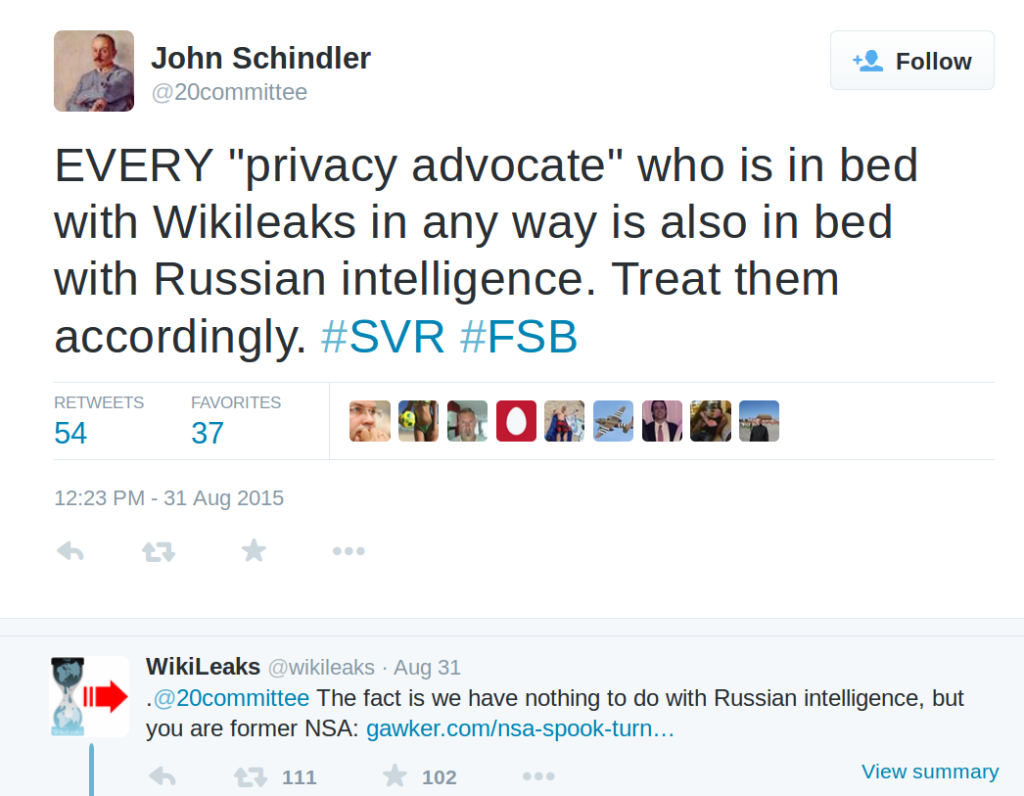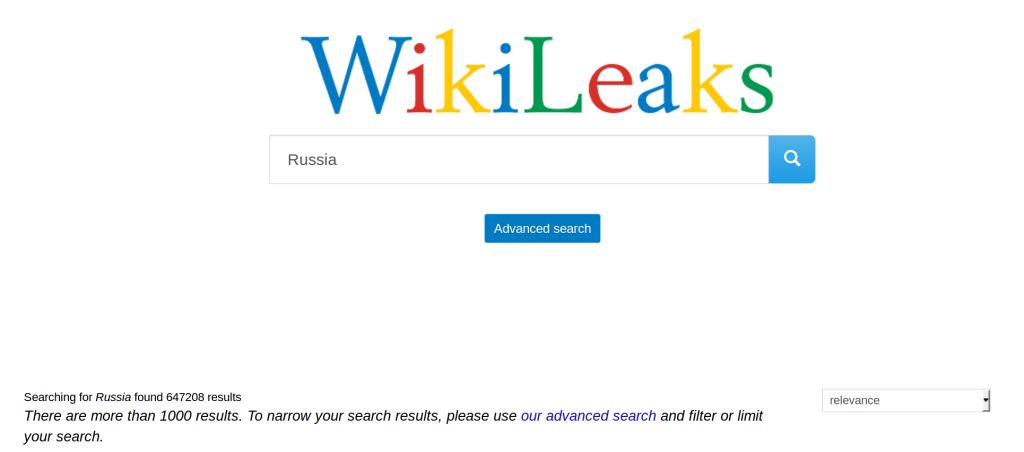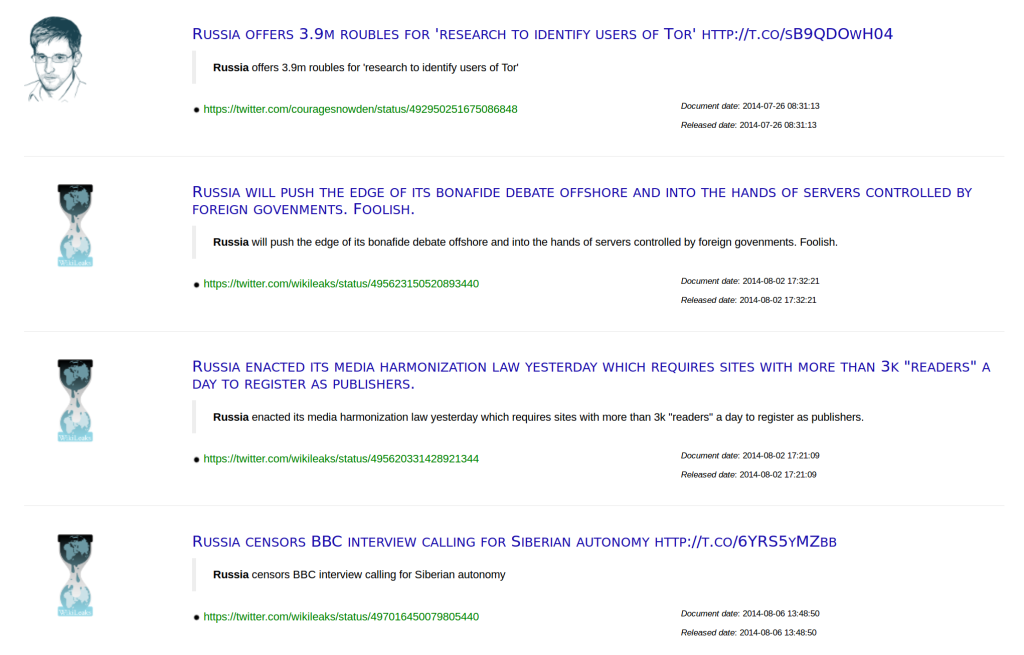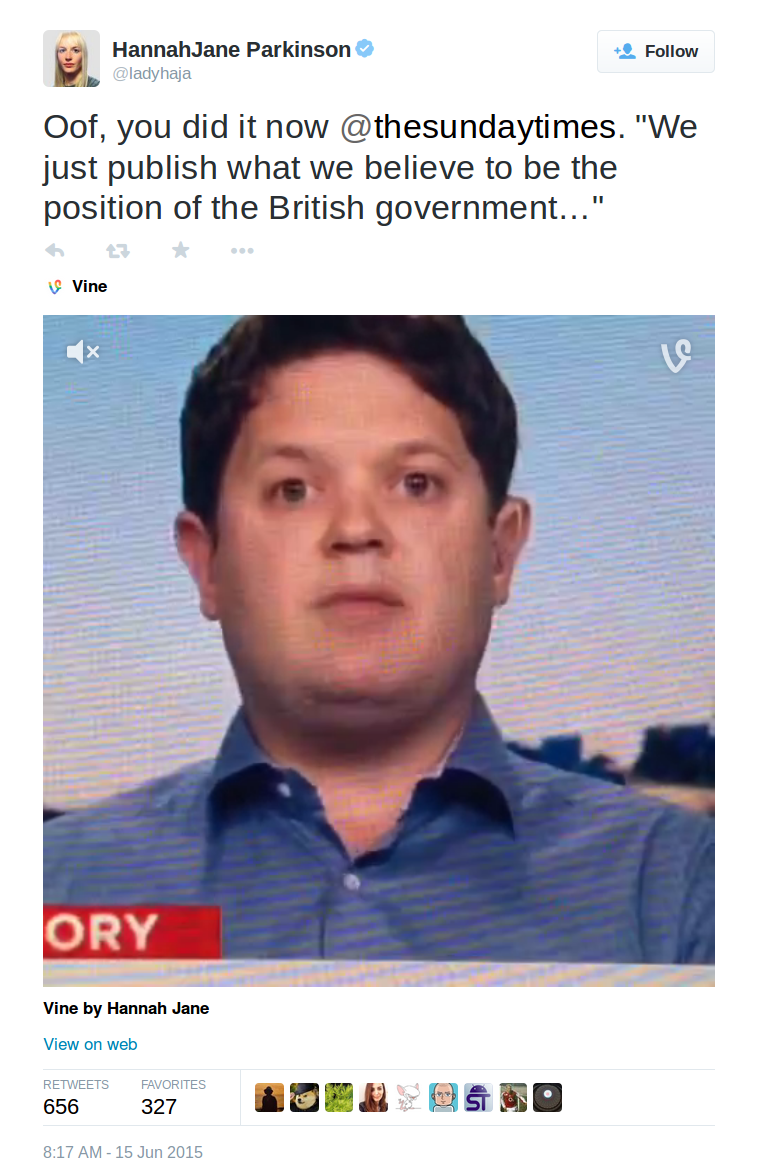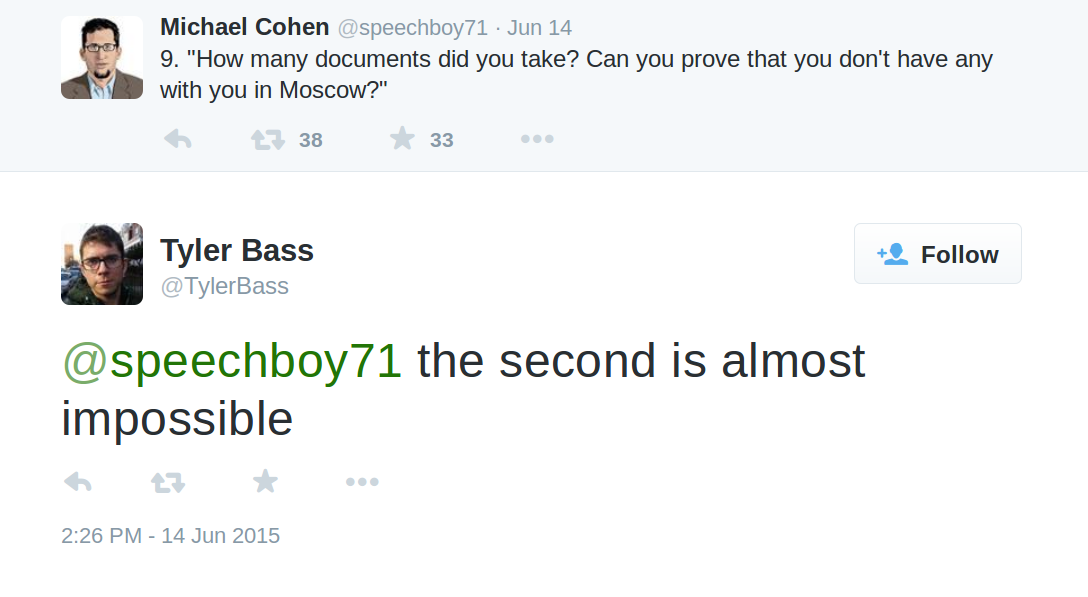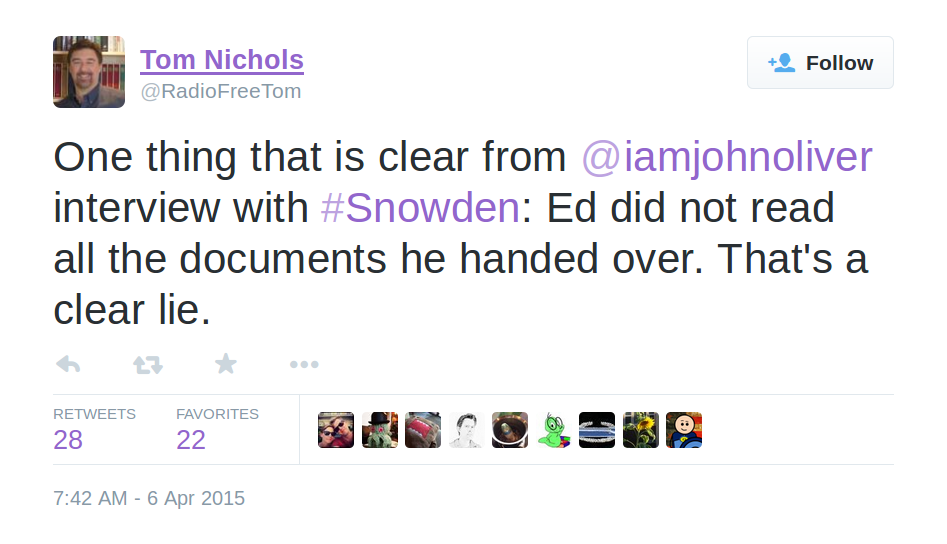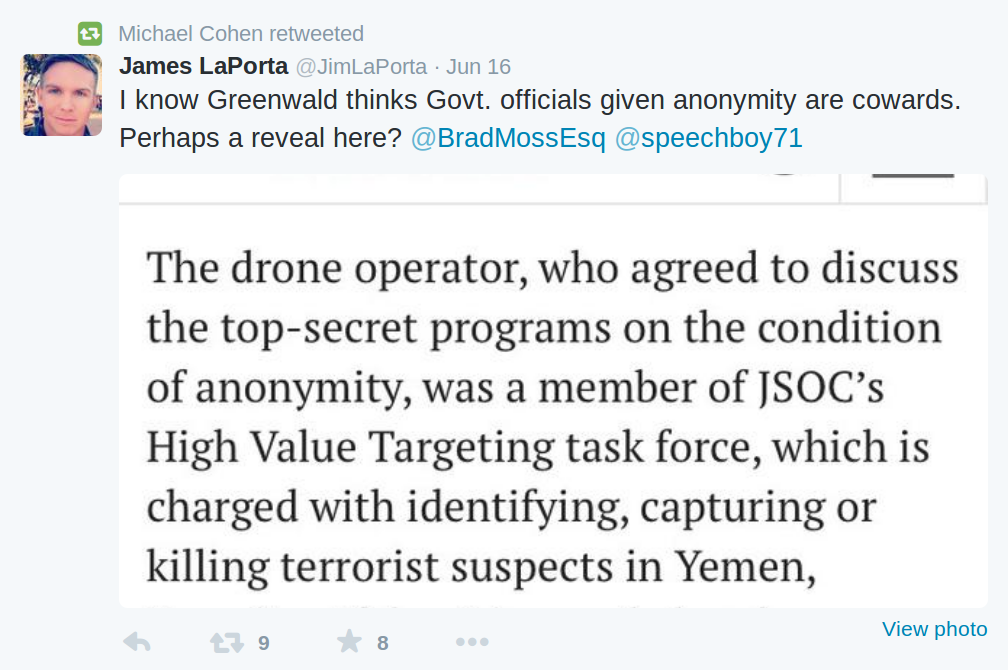Closing a week in which the world witnessed the most poorly-executed and resoundingly debunked smear plot against Julian Assange of all time, today’s junk-food-news (as Mnar Muhawesh would describe it) barely rates this mention.
But because of where it was published, I’m taking it on.
Doing The Dirty
In a self-discrediting, tabloidesque, grasping-at-straws, thoroughly compromised “article” for Buzz Feed, ex-WikiLeaks intern James Ball once again attempts to spin his short-lived six-years-ago experience with Assange into contemporary relevance.
This isn’t a first. He’s been rehashing his story year in and year out.
In an earlier anti-Assange, anti-Ecuador piece he was editorially babysat on the by-line by a London BuzzFeed editor whose last 4 credits on the site are all aged anti-WikiLeaks articles crafted in tandem with James Ball.
A disclosure at the end of Ball’s latest WikiLeaks smear reads: “James Ball, one of the authors of this article, worked for WikiLeaks for a short period between late 2010 and early 2011.” (The disclosure does not appear on earlier articles on the same topic. Such as this one.)
What the disclosure fails to mention is that James Ball was in fact fired from WikiLeaks in early 2011.
This was revealed by notes published by WikiLeaks in response to the disputed Alex Gibney portrayal of related events in the unauthorised (and disputed) biography of WikiLeaks titled “We Steal Secrets: The Story of WikiLeaks”, in which James Ball was heavily featured, despite his extraordinarily brief tenure with the organisation.

While omitting to mention his firing, or that his involvement with WikiLeaks spanned at best, 23 days, Ball does allude to some controversy:
“To save readers a Google search or two, [Assange] would tell you I was in WikiLeaks as an “intern” for a period of “weeks”, during that time acted as mole for the Guardian, stole documents, and had potential ties to MI5.”
The lack of context surrounding these nefarious references is meant to come off as both humorous and self-deprecating. They serve to diminish the impact of an inevitable discovery of the reality: Ball told a friend he had interviewed for MI5.
He leads his readers to believe that the numerous denouncements of him are just outlandish rather than rooted in long-established fact, and that it is he and not Assange, who is the true victim.
That his body of anti-WikiLeaks work fits the messaging and agenda of the very intelligence agencies who oppose WikiLeaks, is of course, mere coincidence!
In this, Ball’s writing is as misrepresentative of himself as of his subject. Almost as misrepresentative as posting the same article under multiple different titles at precisely the same time and then circulating them both:


Both versions are timestamped October 23rd, 2016 at 8:11pm. Each article has its own unique URL so they are published as two seperate articles rather than just one with its headline changed. (Though by the time of writing, the former now has a redirect to the latter.)
One has a more benign title and the other an overblown, dramatic title. The former has a trending icon yet the latter earned over triple the hits and is positioned in a central position on the front page of BuzzFeed UK. Draw your own conclusions.
Going Down In History
Ball’s back catalogue of BuzzFeed work oscillates between the vacuous and the ridiculous and his WikiLeaks smears are no exception.
From the scintillating “‘Very Right Wing People’ Are Happiest With Their Sex Lives” to “8 Tory Conference Policies That Jeremy Corbyn Has Not Responded To Yet” to “The Science Of The Lambs; How The Global Elite Have Spent 80 Years Being Injected With Sheep Fetuses“, James must be expecting the Pulitzer to arrive in the post any day now.
BuzzFeed is hardly renowned for high quality content but it did once have one of the greatest investigative journalists of all time at its disposal: Michael Hastings. Courageous, witty, bold, daring and polished, Hasting’s archive of BuzzFeed work directly confronted heads of state in a truly adversarial and critical manner.
Hastings famously crafted one of the best profiles of Julian Assange and WikiLeaks ever composed, for Rolling Stone magazine. It covers, vastly more comprehensively and with a finesse far beyond James Ball’s reach, the same period of time Ball refers to in his smear.
Unfortunately, Hastings was so brilliant and supremely talented, and his writing and presentation style so infectious, inspiring and ultimately so effective, that he was killed for it.
Thus BuzzFeed, WikiLeaks and the world was robbed of a giant and historic talent, and all we are left with is… James Ball.
God help us.
Having spent all week crafting an epic about the impending World War III that Assange’s persecutors are doing their damndest to usher in, I almost appreciate the mental respite of getting to effortlessly analyse something so small-minded as the pettiness of Ball’s attacks.
Except that I also resent that these bottom-feeders are still mercilessly crapping on the few journalists who are taking the biggest and most important risks of our generation and achieving the greatest of results, despite them.
Over The Line
Ball’s opus is over 2,900 words which in the realm of click-bait is practically ‘War and Peace‘.
BuzzFeed is, of course, a website whose main navigation mechanisms are buttons that read “LOL”, “win”, “omg”, “cute”, “fail” and “wtf”.
It’s safe to say that Ball’s work could fall into at least four of those categories.
Which makes it tragically easy to dissect.
Predictably, he starts with a homage to the proclamations of power.
[Please note: block quoted text displayed in italics below is sourced from James Ball’s dual-named article: titled either ‘Here’s What I Learned About Julian Assange By Working Alongside Him’ or ‘Inside The Strange, Paranoid World Of Julian Assange’, depending on when you happened to read it.]
“On 29 November 2010, then US secretary of state Hillary Clinton stepped out in front of reporters to condemn the release of classified documents by WikiLeaks and five major news organisations the previous day.
WikiLeaks’ release, she said, “puts people’s lives in danger”, “threatens our national security”, and “undermines our efforts to work with other countries”.
“Releasing them poses real risks to real people,” she noted, adding, “We are taking aggressive steps to hold responsible those who stole this information.” — James Ball
You could be forgiven for thinking that Hillary Clinton stating that she was taking “aggressive steps” against the leakers of CableGate might mean that she has some kind of vendetta.
Given that the law is not meant to be “aggressive“, but merely lawful.
Oblivious to this, James Ball instead uses much of the article advancing the mainstream state-mouthpiece strategy of attempting to convince us that it is in fact Julian Assange who has a vendetta against Hillary.
“Julian Assange watched that message on a television in the corner of a living room in Ellingham Hall, a stately home in rural Norfolk, around 120 miles away from London.
I was sitting around 8ft away from him as he did so, the room’s antique furniture and rugs strewn with laptops, cables, and the mess of a tiny organisation orchestrating the world’s biggest news story.” — James Ball
Having qualified himself as relevant by having been in Julian’s presence in that moment, the reader is expecting some grand revelation to be imminent. That Julian threw something at the television, perhaps? Or made some disgruntled commitment to vengeance?
No, of course he didn’t. So Ball has to fixate on a triviality instead.
“Minutes later, the roar of a military jet sounded sharply overhead. I looked around the room and could see everyone thinking the same thing, but no one wanting to say it. Surely not. Surely? Of course, the jet passed harmlessly overhead – Ellingham Hall is not far from a Royal Air Force base – but such was the pressure, the adrenaline, and the paranoia in the room around Assange at that time that nothing felt impossible.” — James Ball
So after watching Hillary Clinton on TV, Assange and others in the room… thought something.
James Ball knows they thought something because he could see it.
He doesn’t bother mentioning what that something was. Just intimates that it was thought.
What precisely is he suggesting with this anecdote? That the Air Force was going to bomb the mansion? No? Glitter-bomb it maybe?
In keeping with the rest of the piece, James never qualifies his suggestions with any actual conclusions. Just sets up tense scenes and quickly moves on, incapable of climax.
“Spending those few months at such close proximity to Assange and his confidants, and experiencing first-hand the pressures exerted on those there, have given me a particular insight into how WikiLeaks has become what it is today.
To an outsider, the WikiLeaks of 2016 looks totally unrelated to the WikiLeaks of 2010. Then it was a darling of many of the liberal left, working with some of the world’s most respected newspapers and exposing the truth behind drone killing, civilian deaths in Afghanistan and Iraq, and surveillance of top UN officials.” — James Ball
Not two reading minutes earlier, Ball described WikiLeaks as “a tiny organisation orchestrating the world’s biggest news story”. Now, he is trying to drive a wholly invented ideological wedge between the ‘then’ and ‘now’.
Yet six years later, WikiLeaks is still a comparatively tiny organisation (compared to the media conglomerates that it frequently laps circles around) that is, sure enough, still orchestrating the world’s biggest news stories. Ball attempts to suggest that WikiLeaks is no longer working on exposing war crimes, despite their most recent work exposing mountains of evidence that states responsible for arming and funding ISIS are also funding Hillary Clinton’s foundation and/or election campaign.
WikiLeaks are working on the same issues they always have. The crimes of Empire. Corruption and war. But Ball needs you to believe otherwise.
“Now it is the darling of the alt-right, revealing hacked emails seemingly to influence a presidential contest, claiming the US election is “rigged”, and descending into conspiracy. Just this week on Twitter, it described the deaths by natural causes of two of its supporters as a “bloody year for WikiLeaks”, and warned of media outlets “controlled by” members of the Rothschild family – a common anti-Semitic trope.
The questions asked about the organisation and its leader are often the wrong ones: How has WikiLeaks changed so much? Is Julian Assange the catspaw of Vladimir Putin? Is WikiLeaks endorsing a president candidate who has been described as racist, misogynistic, xenophobic, and more?
These questions miss a broader truth: Neither Assange nor WikiLeaks (and the two are virtually one and the same thing) have changed – the world they operate in has. WikiLeaks is in many ways the same bold, reckless, paranoid creation that once it was, but how that manifests, and who cheers it on, has changed.” — James Ball
If the Democratic primaries were not rigged, why was there a slew of resignations of its top officials, not to mention lawsuits, as a direct result of the revelations?
If WikiLeaks is seeking to influence an election, why has it not openly endorsed a political candidate, as the New York Times and nearly every major U.S. publication (and many others around the world) do openly, every election cycle?
How inane and hypocritical, to accuse one of the few media organisations that does not endorse a candidate, of endorsing a candidate.
The questions Ball lists as “the wrong ones” – accusations of a change in philosophy or ideology, or of an association with Vladimir Putin – are the precise accusations being made by the candidate-endorsing mainstream publications that James Ball completely ignores the existence of in this article.
And with that, the man who has just informed us that he knew what every person in a room was thinking, without stating what that was, merely because a plane flew overhead, now tells us that WikiLeaks is “bold, reckless and paranoid”.
Pot, kettle.
Having smeared WikiLeaks, Ball goes back to defending Clinton.
“Clinton’s condemnation of WikiLeaks and its partners’ release of classified cables was a simple requirement of her job. Even had she privately been an ardent admirer of the site – which seems unlikely – doing anything other than strongly condemning the leak was nonetheless never an option.
That’s not how it felt to anyone inside WikiLeaks at that moment, though. It was an anxiety-inducing time. WikiLeaks was the subject of every cable TV discussion and every newspaper front page, and press packs swarmed the gates of every address even tenuously connected to it. Commentators called for arrest, deportation, rendition, or even assassination of Assange and his associates.” — James Ball
Simply: no. It is not Clinton’s job to “aggressively” pursue anyone. There is no legal mandate for that. Any more than it is her job to aggressively pursue donations, paid-for speeches, the invasion of Libya, or any of the other crazy, corrupt nonsense she got up to while employed as Secretary of State.
Nor is it the job of commentators to be using mass media to call for illegal assassinations, but this is the effect of corruption at the very top echelons of government going unchecked for so long – it trickles down. Those beholden to power become emboldened to emulate them because they know the system will forgive and protect the corrupt. This is how corruption spreads from administration to administration and from generation to generation.
This is how a black man selling loose cigarettes on a New York street can be killed by police while a modern-day political mafia operate in the White House with immunity and a blank cheque.
Just stop and think for a minute – Bill Clinton was impeached. Impeached for lying to Congress. His wife publically ‘forgave’ him his indiscretions and now she’s going to be President. And he’s going back to the White House.
An impeached President will be moving back into the White House.
Does this not seem a little strange?
Maybe there’s a bigger problem to be addressed than a publishing organisation exposing corruption? Like, maybe the actual corruption itself, should be worthy of 2,900 words of James Ball’s attention?
Apparently not. He is too busy mud-slinging for The Empire.
He continues:
“At the same time, WikiLeaks was having its payment accounts frozen by Visa and Mastercard, Amazon Web Services pulled hosting support, and Assange was jailed for a week in the UK (before being bailed) on unrelated charges relating to alleged sexual offences in Sweden.
Inside WikiLeaks, a tiny organisation with only a few hundred thousand dollars in the bank, such pressure felt immense. Most of the handful of people within came from a left-wing activist background, many were young and inexperienced, and few had much trust of the US government – especially after months of reading cables of US mistakes and overreactions in the Afghan and Iraq war logs, often with tragic consequences.”
“How might the US react, or overreact, this time? WikiLeaks was afraid of legal or extralegal consequences against Assange or other staff. WikiLeakers were angry at US corporations creating a financial blockade against the organisation with no court ruling or judgments – just a press statement from a US senator.
And the figurehead of this whole response was none other than Hillary Clinton. For Assange, to an extent, this is personal.” — James Ball
Assange has repeatedly stated that the system is broken, that the electoral process is a farce, and has described Clinton vs. Trump as Cholera vs. Gonorrhea.
By now it is pretty obvious that it is James Ball, for whom this is personal. He is yet again quite literally selling his dated, meagre WikiLeaks experience, and wants us to believe that he has a unique insight into the motivations of Julian Assange. Pffft.
“It’s unfair, or at least an oversimplification, to say Assange is anti-American. He would say he supports the American people but believes its government, its politics, and its corporations are corrupt.
A result of this is that he doesn’t see the world in the way many Americans do, and has no intrinsic aversion to Putin or other strongmen with questionable democratic credentials on the world stage.” — James Ball
What better description is there of the Clinton cabal and in fact the entire U.S. military industrial complex than “strongmen with questionable democratic credentials on the world stage“?
That is a literal definition of every single Western regime, yet it is being used to prop them up by attacking their political enemies to distract us from the obvious.
The facade of democracy lost it’s last leg in 2011 with the violent crushing of the Occupy movement.
Democracy is over. Finished. Kaput. It has been reduced to a race between a war-mongering wife of an impeached President who cheated her way to the nomination, versus a serial-groper reality TV star with a spray tan.
Democracy in 2016 is billion dollar corporations telling 400 million people that it is their civic duty to pick Tweedle Dum or Tweedle Dee.
No amount of burying our heads in the sand or reading James Ball articles on omg-lol-wtf-BuzzFeed is going to change that.
James Ball and the Rape Investigation
There is nothing more annoying to a survivor of rape than people who get sanctimonious on the behalf of alleged survivors, only when it is politically expedient to do so. Or worse, to cash in on it.
Of Assange’s alleged victims, Ball writes:
“Those who have faced the greatest torments are, of course, the two women who accused Assange of sexual offences in Sweden in the summer of 2010. The details of what happened over those few days remain a matter for the Swedish justice system, not speculation, but having seen and heard Assange and those around him discuss the case, having read out the court documents, and having followed the extradition case in the UK all the way to the supreme court, I know it is a real, complicated sexual assault and rape case. It is no CIA smear, and it relates to Assange’s role at WikiLeaks only in that his work there is how they met.” — James Ball
Nowhere does he mention that the women did not want Assange charged. Or that one said the police manufactured the case and that she was railroaded into it. Or that the other specifically said she was not raped.

Ball never once lets the facts get in the way of his story.
So Who Is James Ball?
In short, exactly what his article claims Julian Assange is. A bullshit artist.
By contrast, the following is what WikiLeaks had to say about James Ball, in their response to ‘We Steal Secrets’.
Ball lie number 1: That James Ball wouldn’t sign a non-disclosure agreement on ideological grounds
“James Ball is lying. James Ball signed a non-disclosure agreement with WikiLeaks on November 23, 2010.
WikiLeaks uses non-disclosure agreements to help protect the safety of its sources, its staff and its upcoming publications from informants. The FBI and rival media organizations have previously bribed or pressured persons they believe to be close to WikiLeaks. James Ball understood this, and saw no irony in being asked by WikiLeaks to sign his NDA in November 2010.
WikiLeaks staff suspected Ball was passing information from WikiLeaks onto others: rival media organisations or government agencies. WikiLeaks discovered that Ball had told a colleague he had a job interview with the UK intelligence service MI5 and had interned at the UK Home Office. WikiLeaks also discovered Ball was attending secret meetings with the Guardian journalist David Leigh – his former college professor at City University, and a vocal opponent of WikiLeaks.
While Assange was in prison it was discovered that someone had accessed the Sunshine Press press contacts account using an email client, and had mirrored its archive. Ball had briefly been given access to the account. Documents from the account subsequently appeared in the Guardian. Physical documents went missing, and Ball’s behaviour became erratic.
Therefore a second, special non-disclosure agreement was devised for Ball, to test his reaction. After being asked to sign it at WikiLeaks’ Norfolk office, Ball became anxious and asked to postpone signing it while he considered it. He then left for London.
It later became obvious to WikiLeaks staff that, showing malicious forethought, Ball had stolen what he thought was WikiLeaks’ copy of his original NDA (which would have given him both copies). However the document that James Ball stole was not WikiLeaks’ copy of the agreement. Ball had left his NDA out on a desk and it had been filed for security reasons. He had stolen his own copy of the NDA. The other copy had already been removed to a secure location, and is still in WikiLeaks’ possession.
Ball became unavailable for work, and stopped returning calls. He lied about his whereabouts, and invented reasons why he could not return, which were confirmed to be untrue by a mutual third party. After several weeks, it became clear that he had cashed in his favours to David Leigh, in return for which he was given a post at the Guardian and the first credit in David Leigh’s book.
Ball pursued career advancement at the Guardian by placing himself at the service of The Guardian’s institutional vendetta against WikiLeaks, publishing numerous deceitful attacks on WikiLeaks over the last two and a half years, all of which rely on heavily embellishing his role as a freelancer working as a junior intern at WikiLeaks.
During the short time he worked for WikiLeaks he insisted on being called “a journalist working with WikiLeaks” or “a freelancer working for them“. Some time after leaving, Ball reimagined his role at WikiLeaks for career advantage, changing his title in order to misrepresent himself to others as a “former spokesperson.” James Ball was never a spokesperson for WikiLeaks. Alex Gibney did not secure an interview with WikiLeaks’ actual spokesperson, Kristinn Hrafnsson.
Ball has consistently maintained that he never signed the WikiLeaks NDA, and has felt secure enough to lie in print and on camera because he believed he had destroyed the evidence, having stolen the NDA.
Although he lies straight to camera in “We Steal Secrets” about the NDA, in January 2013 Ball admitted that he did sign the WikiLeaks NDA, after having been challenged about it by WikiLeaks lawyer Jennifer Robinson. In admitting this, he lied again, claiming that he had never denied signing a WikiLeaks NDA. The evidence to the contrary is in the film itself.” — WikiLeaks
Ball lie number 2: re Julian’s ex-handle, ‘Mendax’
“Ball fabricates the significance of one of Julian Assange’s teenage screen names “Splendide Mendax”, this time in the mouth of an interviewee. The screen name is a joke. In Latin it means “Nobly untrue”, but as a pseudonym it describes how handles protect an author’s identity even though being inherently “untrue”. It is a phrase which describes itself, not its author, just like the word “word”.
‘Claims my teenage nickname was Mendax, “given to lying”, instead of Splendide Mendax, “nobly untruthful”, which is a teenage joke on handles being inherently untrue. It is self-referential, not a psychoanalysis 20 years ahead of its time!'” — Julian Assange, Complaint to Ofcom regarding the Guardian co-produced Secrets & Lies documentary, January 9, 2012.” — WikiLeaks
Ball lie number 3: That he was a WikiLeaks spokesperson
“The full interviews from which Gibney selects clips of James Ball talking to the media tell a different story. As James Ball makes a number of false statements in Gibney’s documentary these are worth watching in full. In one with Fox TV, for example, Ball appears alongside Kristinn Hrafnsson (as he usually did), who is introduced as “WikiLeaks spokesman” while Ball is described as “a journalist working with WikiLeaks”. James Ball never “essentially filled in” as “WikiLeaks’ principal spokesperson”.
At 2.45 mins in, Mark Stephens explains that Julian Assange is not in hiding: “the police know how to get in touch with him, the Swedish prosecutor knows how to get hold of him, so everybody knows where he is – except the media.” It is therefore false and misleading for James Ball to suggest that Julian Assange was “in hiding”.
Starting at 8.30mins, Ball refutes the suggestion that WikiLeaks has put anyone in harm’s way: “We have correspondents from all over – you know, the New York Times Chinese correspondent, the Guardian Chinese correspondent – checking those cables that are published to see what they’re like. Of course WikiLeaks takes redactions seriously. It was said on the Iraq War Logs that there were 300 names going to be in them by the Department of Defense. When they were actually published, of course, the whole things were published redacted and safe.”
Note: In this December 3, 2010 interview with ABC Lateline, James Ball makes the following remarks about Julian Assange being ‘in hiding’ and his own relationship to WikiLeaks:
“Well, I’m a freelancer working for them, for me it’s kind of perhaps a little bit of an outside view but from what I’ve seen working with them this week…” [Ball had been interning at WikiLeaks for 10 days at this date];
Asked what would happen if Julian Assange is arrested, Ball replies:
Ball lie number 4: That WikiLeaks funds and fundraising were used for Julian’s defense
“This is a deliberately false statement by James Ball. Alex Gibney does not challenge Ball on it. The facts are easy to find. The Julian Assange and Wikileaks Staff Legal Defense Fund (JADF) and the various means by which Wikileaks receives donations for its running costs are kept separate.
Donors to “Dinner for Freedom of Speech” were given a choice to donate to WikiLeaks or JADF, and this was made explicitly clear. The different donation bank details were clearly set out. There is no confusion for donors about where their money is going.
The original ‘Dinner For Free Speech’ web page is still available, having been mirrored by the internet archive on February 10, 2011. It clearly indicates where donors can choose to donate to either the Defense Fund or to WikiLeaks, and also states unequivocally:By pledging a donation on this day, no matter how large or small, you can help support Julian’s defence fund, and/or contribute to WikiLeaks.
This fundraising idea was organised in February 2011. James Ball’s internship had expired by mid-January 2011 and he had no involvement in this initiative at all.
The JADF is administered and audited by Derek Rothera & Co. The terms of the trust and trustees can be found here.” — WikiLeaks
Ball lie number 5: That WikiLeaks didn’t support Pfc. Manning
“This is a now-classic anti-WikiLeaks argument created by James Ball, an attempt to allege that the blame for Manning’s arrest lies with WikiLeaks and not with Adrian Lamo, the FBI informant who turned Manning in after telling him that he would protect him.
Ball’s allegation that WikiLeaks does not adequately support its sources conflicts with the account that Manning presented before the military court regarding his alleged contacts with WikiLeaks. In a plea statement, February 28, 2013, Manning said this:
After a period of time, I developed what I felt was a friendly relationship with Nathaniel [Manning’s designation for his contact at WikiLeaks]. Our mutual interest in information technology and politics made our conversations enjoyable. We engaged in conversation often. Sometimes as long as an hour or more. I often looked forward to my conversations with Nathaniel after work.” — WikiLeaks
This ties in to the audacious claim in Ball’s latest article that WikiLeaks “botched” the rescue of Edward Snowden by “stranding him” in Sheremetyevo Airport.
This is so ironic, as James Ball worked for The Guardian, one of the newspapers who had direct access to Snowden and who financially benefited from his leaks.
Unfortunately, The Guardian’s staff abandoned Edward Snowden in Hong Kong. Had WikiLeaks not stepped in, the end result of Snowden’s actions would have been life imprisonment (under unimaginable conditions, such as those meted out to Pfc. Manning), or death.
Nevermind the small fact that the U.S. cancelled Snowden’s passport, preventing him from being able to travel beyond Moscow.
In June 2013, it was not clear at all that Snowden would even live. Very few people expected him to make it as far as July. Let alone to be granted temporary asylum (and subsequently, according to Snowden, permanent residency).
The lengths WikiLeaks went to to make this possible are unimaginable to any other media organisation. They put their own staff on the line to accompany him across borders, help to negotiate his asylum, and spend months on end with him to ensure his physical and mental wellbeing.
When was the last time The Guardian did that? When was the last time BuzzFeed did it?
This is a clear cut case of professional envy. Ball seeks to piss on the achievements of WikiLeaks in saving Snowden precisely because those actions were so significant and historic.
Ball goes on to reference the single instance of Snowden and WikiLeaks ever having a cross word in public. Ball claims “In recent weeks, Snowden has publicly clashed with Assange…”
Recent weeks? It was July the 28th. Less than two weeks after Ball published his puff piece on the new British Prime Minister “This Is What It’s Like To Work In Government For Theresa May.”
God forbid Ball quote what Snowden has actually said about WikiLeaks, from their 10th anniversary celebration this month –

Ball’s claims become more and more ridiculous, the further you get into the article:
“While the extent of WikiLeaks’ role in the Arab Spring remains a matter for debate, Assange was at the forefront of an information revelation. His attempts to regain the spotlight in the meantime have largely failed.” — James Ball
WikiLeaks is garnering up to 40,000 – 50,000 retweets per tweet. They have the entire world’s media as a captive audience. They are the most talked about news organisation in the world. Their releases are poured over by millions of people on a daily basis. Assange is invited to appear on the most significant and wide-reaching of media platforms.
This is what Ball deems failure?
And success is, what? Writing about sheep fetuses for BuzzFeed?
WikiLeaks has achieved stratospheric levels of impact, attention, growth, political and historical impact.
But this two-bit ex-intern from six years ago needs you to believe otherwise.
Written by Suzie Dawson
Twitter: @Suzi3D
Official Website: Suzi3d.com
Journalists who write truth pay a high price to do so. If you respect and value this work, please consider supporting Suzie’s efforts via credit card or Bitcoin donation at this link. Thank you!
